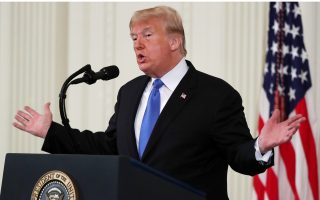Brazil’s engagement in the fight against the Zika virus epidemic

The Zika virus disease, previously relatively unknown throughout the world, was identified for the first time in Brazil in 2015, after an outbreak in French Polynesia in 2014. Although the virus has been known for some decades, this is a completely new situation in terms of international public health and also for the international scientific community. Until 2014, there were records of the sporadic appearance of the Zika virus in Africa, Asia and Oceania. According to the World Health Organization (WHO), since last year, in addition to Brazil, 24 other countries and territories of the Americas have been affected.
The disease caused by this virus (which is transmitted by the same vector as dengue, chikungunya and yellow fever – Aedes aegypti) was swiftly characterized as an epidemic by the Brazilian authorities. There is no scientific proof regarding the transmission of the disease other than by the bite of an infected mosquito. People who present symptoms most commonly have fever, skin rashes, conjunctivitis and muscle and joint pain. In general, these symptoms last for two to seven days after contamination. At the end of 2015, for the first time, the Brazilian authorities identified a possible association between the contamination of women by the Zika virus during pregnancy and the birth of babies with microcephaly, a serious congenital condition in which the brain does not develop properly.
With an integrated universal public healthcare system that provides free treatment, Brazil has reacted swiftly since the identification of the epidemic outbreak, with a view to understanding the virus, the manner that it appears and evolves, as well as the risk factors associated. Brazilian health experts were able to make a swift association of microcephaly with the Zika virus thanks to their work.
According to the WHO, currently the most important preventive measures needing to be adopted are control of mosquito populations and preventing mosquito bites. The Brazilian government has created a task force that is without precedent – with financial, technological and scientific resources – aimed at the prevention and fight against the mosquito transmitting the disease for short, medium- and long-term periods. Around 220,000 personnel from the army, navy and air force have joined 300,000 public agents and volunteers all over Brazil to combat breeding grounds in every house.
Brazil has been congregating the efforts of specialists in various areas of medicine from all over the world in order to carry out research in the country. The government has been coordinating the international effort in the fight against the Zika virus, launched with the mobilization of Latin American and Caribbean countries, and in partnership with the government of the United States for the production of a vaccine. A continual dialogue with international bodies continues, for instance, with the WHO and the USA's Centers for the Disease Control and Prevention (CDCs).This is a national priority and the government of Brazil has acted in a transparent and swift manner.
Apart from traditional strategies and efforts to strengthen its healthcare network, Brazil is investing in technology and research to develop a vaccine and new therapies. A genetically modified mosquito, now under trial, could offer a new and promising weapon. Our national public health institutions are reaching out to their partners abroad to strengthen the research network and develop more efficient diagnostic kits, antiviral drugs and a Zika vaccine.
In Brazil, the Butantan, Chagas, Pasteur and FioCruz institutes operate as leading world-class institutions with vast experience in tropical diseases and have a successful record in technological development. All the available expertise and manpower of these and other organizations is now directed towards this fight, in cooperation with international partners. On February 22, the Butantan Institute received additional financial resources from the Federal Government to invest in the final tests of a vaccine against dengue, which should also contribute to the development of an effective vaccine for the Zika virus. Other international cooperation initiatives aimed at the development of a vaccine include a partnership between the Evandro Chagas Institute and the University of Texas and a credit of 10 million euros provided by the European Union.
The private sector, especially drug companies, is also investing in research into new and innovative ways to defeat the virus. This is an emergency but Brazil and the world have the know-how and are able to muster the human and material resources to meet the challenge.
Tourists and travelers bound for the regions affected by the Zika virus should take basic precautions as they would anywhere in the world. The World Health Organization and the World Tourism Organization have not issued any international travel or trade restrictions on the account of the virus. There is advice of special care for pregnant women, who ought to consult their doctors before traveling and adopt measures to reduce the presence of the disease transmitting mosquitoes, such as keeping doors and windows shut or using insect door/window mesh screens, wearing trousers and long sleeves, and applying mosquito repellents suitable for pregnant women.
For the Rio 2016 Olympic and Paralympic Games, the government of Brazil has already adopted major precautions. All construction areas of the Olympic venues have regular visits from environmental health officers in order to control any possible mosquito breeding sites. Any remaining reservoirs of the construction work will be removed and those that cannot be removed will be treated in order to avoid any appearance of mosquito breeding sites. Local staff will identify and eliminate possible breeding sites. During the Games, all of the Olympic venues will be manned by at least one accredited environmental health officer tasked with carrying out a daily sweep searching and removing any areas which could potentially become breeding sites. In addition to the accredited officers working within the Olympic venues, there will also be environmental health teams tasked with the control of mosquitoes in the entire regions surrounding the competition and public gatherings areas. Moreover, the Olympics will take place during winter in the Southern Hemisphere, a period of cooler temperatures, which usually contribute to a sharp decrease in mosquito-borne illnesses.
The Brazilian government and people are fully engaged in fighting the Zika virus, which is everybody’s duty. By adopting necessary precautions to prevent the proliferation of the mosquito, all will be contributing to fighting this disease.
* Edgard Antonio Casciano is Ambassador of Brazil in Athens.



